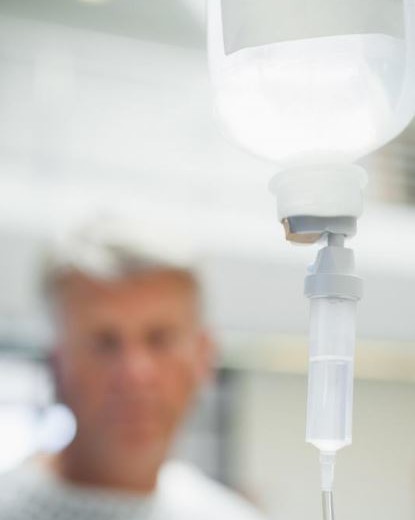Hypokalemia is found in many ICU and emergency patients. In order to know how many millimoles are required to restore the normal level of potassium, we use the following potassium replacement formula.
Total Potassium deficit = (Potassium deficit) + (Daily requirement of Potassium)
Potassium deficit = (Normal value of potassium – Patient’s value of potassium) x bodyweight x 0.4
Daily requirement of potassium = 1 x body weight in Kg
Example of Calculation of total potassium deficit using potassium replacement formula
Now let us apply the above potassium replacement formula in the following example in order to understand it better.
An 80 Kg man’s serum potassium level is 3.0 mmol, calculate the total potassium deficit.
Lets us first calculate the pt’s potassium deficit,
As we know that;
Potassium deficit = (Normal value – Patient’s value) x Weight in Kg x 0.4
and
Normal value = 4 mmol
Pt value = 3.0 mmol
Weight of patient = 80 Kg
Now let us put these values in the above potassium replacement formula
Potassium deficit = (4.0-3.0) x 80 x 0.4 = 32 mmol
Now lets us calculate the daily requirement of potassium for this patient;
As we know that;
Daily requirement of potassium = Weight of patient in Kg x 1
and
Weight of the patient = 80 Kg
So,
Daily requirement of potassium = 80 x 1 = 80 mmol.
Now using these values of potassium deficit and daily requirement we can calculate the total potassium deficit.
As we know that;
Total potassium deficit = Potassium deficit + daily requirement of potassium
and in this case;
Potassium deficit = 32 mmol, and daily requirement of potassium = 80 mmol
So Total potassium deficit will be equal to = 32 + 80 = 112 mmol
and start replacing the potassium at the rate of 20 mmol per hour. In order to do so, add 20mmol of potassium in 50 ml of normal saline, and infuse it over a period of one hour using an infusion pump. Monitor the ECG.


With the above described equation for calculation of potassium deficit (4 – 3 mEq/L) and then multiplying it with body weight (80kg) and 0.4 : (4 – 3) X 80 X 0.4 you greatly underestimate the potassium deficit, since the serum potassium concentration (normally 3.5 – 5.0 mEq/L) is far below the intracellular fluid potassium concentration which is around 150 mEq/L. By supposing the deficit of potassium per liter is 1 mEq/L , you are supposing the intracellular potassium decreased from 150 to 149 mEq/L. Actually if the serum potassium concentration decreased from 3.5 to 2.5 mEq/L, the total body deficit of potassium is 200 – 400 mEq/L. This means that your calculation is greatly underestimated
The daily requirement of potassium is correct = 1 -2 mEq/Kg body weight
Thank you for posting your opinion.
We have been replacing potassium using the above formula, we have been successful in doing so. If you have a better alternative method, please share with us, we would love to try it.
Thank you
Dr. Adil
Dear Dr Adil. Viewing the several factors that influence the potassium shift intra and extracellular it is common decision to give the maximum daily requirements , which in your example would be 160 mEq (for 80 kg). The body then correct itself by reducing the urinary loss. If with this dose (160mEq) the potassium still lags below normal, you can still titrate carefully with higher dose especially if you are adding Bicarb sol. in your treatment. In some cases where the serum potassium was 2.7 mEq/L we gave almost 200 mEq in the first 24 hours to stop arrhythmia and bring potassium to 3.8 mEq/L
Thank you so much dear Mohy for the reply.
Your statement makes sense. Can you please provide me with a reference, is there a formula you use or add a coefficient or constant to compensate for urinary losses?. I will look further into and update the article.
Kind Regards.
Dr. Adil